Multidisciplinary Research Unit 2
MRU 2 aims at an interdisciplinary approach to disability and technology focusing on the development and implementation of innovative and effective approaches to research: for the use of assistive technology and accessibility towards inclusive education and digital inclusion, for approaches to rehabilitation and functionality through assistive technology and for quality of life of people with disabilities of all ages with the use of assistive technology.
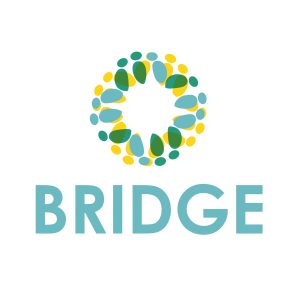
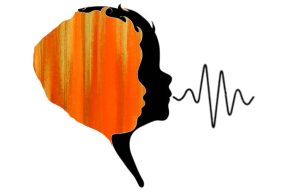
Acronym: VoiceKids
Years: 2024-2027
Funded by: KA220-SCH – Cooperation partnerships in school education
Objectives: The aim of the project VoiceKids is integrate Augmented and Alternative Communication (AAC) and text-to-speech synthesis (TTS) technologies of children’s voices, to create inclusive learning environments. By empowering educators through tailored training, enhancing technological integration, promoting inclusivity, and fostering continuous innovation, the project endeavors to accommodate all learners, especially those with complex communication needs, all with a scalable and sustainable model, ensuring accessible and engaging educational experience for every student.
Website: https://erasmus-plus.ec.europa.eu/projects/search/details/2024-1-IT02-KA220-SCH-000257353
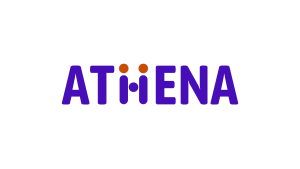
Acronym: ATHENA
Years: 2023-2025
Funded by: ERASMUS-EDU-2022-PCOOP-ENGO
Objectives: The aim of the project is the development of guidelines on how Accessibility and Universal Design can be included in the Higher Education Curricula, regardless discipline, as well as how they can become specific to each discipline. After the development of the guidelines, the consortium will collaborate with Higher Education Institutions that will be encouraged to implement the guidelines in their own programmes of study. The aim is to initiate an educational reform in Higher Education, in order to provide any future professional with knowledge and competences towards an inclusive society.
Website: https://athenaproject.eu/
Funded by: UNICEF 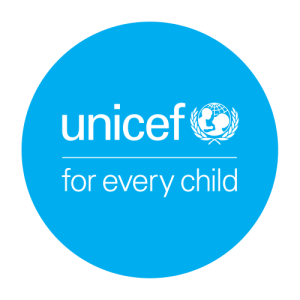
Coordinator: AIAS Onlus Bologna,
co-proposers: European University Cyprus and GLIC, Italy
Objectives: to support the Government of Serbia and UNICEF to develop Resource Centres (RCs) in Serbia as support mechanisms to mainstream schools in order to to provide inclusive and enabling settings for the learning of children with disabilities. The main tasks including a training and mentoring programme, a feasibility study and a workload and strategic plan, are supported and documented by research evidence to be collected and analysed during the project.
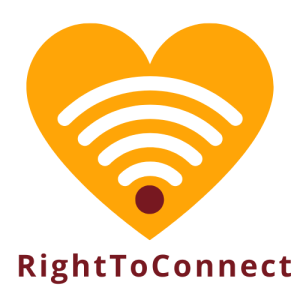
Acronym: RIGHT TO CONNECT NOW
Years: 2022-2024
Funded by: ERASMUS-EDU-2021-PCOOP-ENGO
Objectives: Right to Connect: digital inclusion for persons with intellectual disabilities” is an innovative co-designed e-learning project involving persons with intellectual disabilities. The project builds on the experience of the ENTELIS and ENTELIS+ projects. It involves 10 partners in 7 countries forming a multidisciplinary consortium of service providers, universities, a company and European umbrella organisations. The project aims at fostering the digital skills development of persons with intellectual disabilities to enhance their participation in society and to express active citizenship. Main activities of the project include: “research and innovation”, which will provide the methodological base to define needs of digital skills of persons with intellectual disabilities, tools for future development, the “co-creation labs” and “co-designed e-learning platform” will be focused on the participatory process of development and co-design of training materials and the e-learning platform.
Website: https://righttoconnect.entelis.net/
 Acronym: I’M IN TALES
Acronym: I’M IN TALES
Years: 2021-2023
Funded by: KA2, Erasmus+, KA220-SCH – Cooperation partnerships in school education
Objectives: The I’M IN TALES Erasmus+ project is aimed at sustaining teachers in finding new and innovative educational strategies to foster learning and inclusion. The project main goal is to outline and disseminate a ready to use-methodology for storytelling educational practices that integrates tangible and multisensory materials with digital reality, namely Tangible User Interfaces (TUIs).
Website: https://www.imintalesproject.eu/
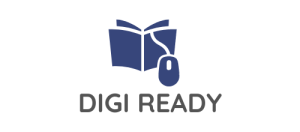 Acronym: DIG-i-READY
Acronym: DIG-i-READY
Years: 2022-2023
Funded by: KA220-VET – Cooperation partnerships in vocational education and training
Objectives: The project aims to provide short-, medium- and long-term solutions, innovative approaches and instruments for VET educators and decision makers with a clear focus on the educational environment and accessibility especially for learners with disabilities for a good, well-balanced, inclusive digital education. The project is anticipated to produce a DIG-i-READY Good Practice Catalogue, with a special focus on implemented solutions during the COVID19 crisis and developing a DIG-i-READY Handbook providing carefully designed Digital Competence indicators and guidelines for “going digital”, a collection of accessible and inclusive digital tools, recommendations for systemic change for a “new and inclusive normal”.
Website: https://digi-ready.eu/
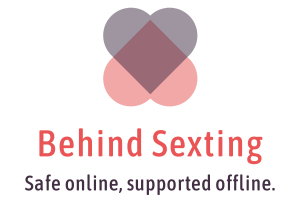
Acronym: BEHIND SEXTING
Years: 2020-2022
Funded by: KA2, Erasmus+ European Commission
Objectives: The project aims to raise awareness in adolescents and parents about the risks of sexting. The project also encourages intergenerational critical discussion and peer learning in schools in order to nurture understanding towards potential risks of sexting and how to prevent them.
Website: https://www.behindsexting.eu/
Acronym: a-STEP
Funded by: COST (European Cooperation in Science and Technology), European Commission
Coordinator: NUI Galway
MU2 Role: CY Management Committee Delegate (Katerina Mavrou)
Objectives: Development of knowledge and tools regarding AT for persons with ASD and/or ID, the research how current ATtechnologies can better match to employment and educational contexts as well as the development of evidence based practices and guidelines for different countries.
Website: https://www.a-step-action.eu/
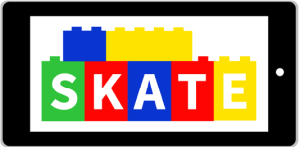 Acronym: SKATE
Acronym: SKATE
Funded by: KA2, Erasmus +, European Commission
Years: 2020-2023
Coordinator: THOMAS MORE KEMPEN VZW
MRU2 Role: Partner: Leading IO1: Mapping, assessment and innovative approaches on inclusive technology for ECEC
Objectives: To foster new skills and knowledge of teachers/educators for the appropriate use of technology/digital solutions to create an increasingly inclusive learning environment and increase the quality of ECEC.
Website: https://skateerasmus.be/
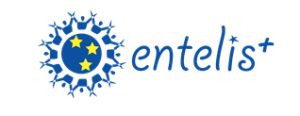 Acronym: ENTELIS+
Acronym: ENTELIS+
Years: 2020-2022
Funded by: KA3, Erasmus +, European Commission
Coordinator: EASPD (European Association of Service Providers for Persons with Disabilities)
MRU2 Role: Partner: Co-leading WP1: State of the Art analysis and report
Objectives: Development and implementation of innovative methods and practices to foster inclusive education and promote common values, as well as fostering digital skills and competences of digitally excluded groups, such as persons with disabilities of all ages through strategic public-private partnerships.
Website: https://entelisplus.entelis.net/
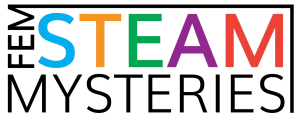 Acronym: FemSTEAM
Acronym: FemSTEAM
Years: 2020-2022
Funded by: KA2, Erasmus +, European Commission
Coordinator: European University Cyprus
MRU2 Role: Coordinator (Lead by Maria Meletiou-Mavrotheris)
Objectives: to counteract the tendency for gender inequality in the STEAM by bringing out the significant role of women in STEAM to students’ and teachers’ community, thereby fighting stereotypes of students and teachers, while providing role models for young girls to follow STEAM careers and also young boys to empower their female classmates and co-workers.
 Acronym: BLENDI
Acronym: BLENDI
Years: 2019-2022
Funded by: KA2, Erasmus +, European Commission
Coordinator: DIAKONIA-AMMATTIKORKEAKOULUOY, Finland
MRU2 Role: Partner (authored the proposal): Co-leading the project and responsible for the developing the methodology and guidelines for the project and the framework for teachers’ training activities
Objectives: Development and implementationof an innovative practical digital toolkit and a blended training course that will help teachers use blended learning in schools based on the principles of inclusive education;foster the digital skills of teachers based on the European Framework for the Digital Competence of Educators; promote the inclusion and participation of all students in digital environments through applying the methodology of co-design among students and teachers.
Years: 2019-2022
Funded by: KA2, Erasmus +, European Commission
Coordinator: ALMA MATER STUDIORUM – UNIVERSITA DI BOLOGNA, Italy
MRU2 Role: Partner: Leading IO2: collecting the main patterns from unitary and split ECEC monitoring systems, and prepare a Comparative Report that will emphasize the main differences between the different settings, as well as collect the best European tools for monitoring ECEC quality focusing on development of children.
Objectives:showing how the combination of pre-linguistic screening methodologies and effective teaching methods can reduce the gap between children in the Autism Spectrum Disorder (ASD) and their non-disabled peers, both at the cognitive and educational levels. Specific objectives: To allow preschool teachers to have the necessary knowledge and competences in order to beable to access children affected by ASD in the activities of the classroom;To introduce and recommend pre-primary teachers’ curricula into a unified system ISCED 0 (0 – 6years), taking into account ASD children needs; To introduce and recommend monitoring tools and monitoring framework to create greatercoherence in monitoring practices.
Website: https://site.unibo.it/nemoproject/en
 Acronym: ReadTwinning
Acronym: ReadTwinning
Years: 2019-2022
Funded by: KA2, Erasmus +, European Commission
Coordinator: Forum del libro, Italy
MRU2 Role: Partner: enhance project activities by expertise in the use of emerging technologies in education. EUCwill also bring the necessary expertise to design and deliver high quality training resources forteachers, coordinating the development of the Blended training Courses for Teachers and ParentalEngagement. EUC will lead the teachers’ training
Objectives:to address the ongoing need for effective strategies and tools to promote
reading among young people, bridging school activities with personal interests and fostering socialconnections across students of different classes, schools, cultures and countries, especially focusing on disengaged students (including students with disabilities)
Website: https://readtwinning.eu/
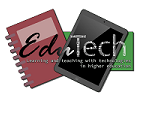 Acronym: EDUTECH
Acronym: EDUTECH
Years: 2019-2021
Funded by: KA2, Erasmus +, European Commission
Coordinator: UNIVERSIDAD EUROPEA DE MADRID, SL
MRU2 Role: Partner: enhance project activities by expertise in gamification for learning. EUC will also bring the necessary expertise on accessibility for learners with disabilities in the design of the learning platform and materials.
Objectives: to improve the quality and efficiency of learning outcomes, directly impacting the results of education and training. Specifically, it focuses on implementing new technologies, including accessibility that will enable greater experiential learning, improving the students’ employability, and reducing the skill gap with the labour market.
Website:: https://www.edutechproject.eu/
EDE: European Disability Expertise (former ANED-Academic Network of Disability Experts)
Freely Available educational Material in English and/or Greek
The use of Assistive Technology in Education: A Guide for Teachers and Schools
Digital Accessibility: ENTELIS+ Traninig Matierial (all languages)
Ψηφιακή Προσβασιμότητα: Εκπαιδευτικό υλικό από το πρόγραμμα ENTELIS+ (Ελληνικά)
WHO – TAP: Training in Assistive Technology Products
Προγράμματα εκπαίδευσης για σχεδιασμό προσβασιμότητας
Guidelines and Examples for digital accessibility
AccessibleEU Guidelines and Support Materials on Accessibility
Accessibility Cheatsheets and examples
Accessibility Checker (Ελεγχος Προσβασιμότητας)
Cognitive Accessibility Roadmap and Gap Analysis
Easy to Read by Inclusion Europe
Matching Person and Technology Framework
Video by the World Health Organisation: Assistive technology: improving access through four steps
EASTIN: the Global Assistive Technology Information Network